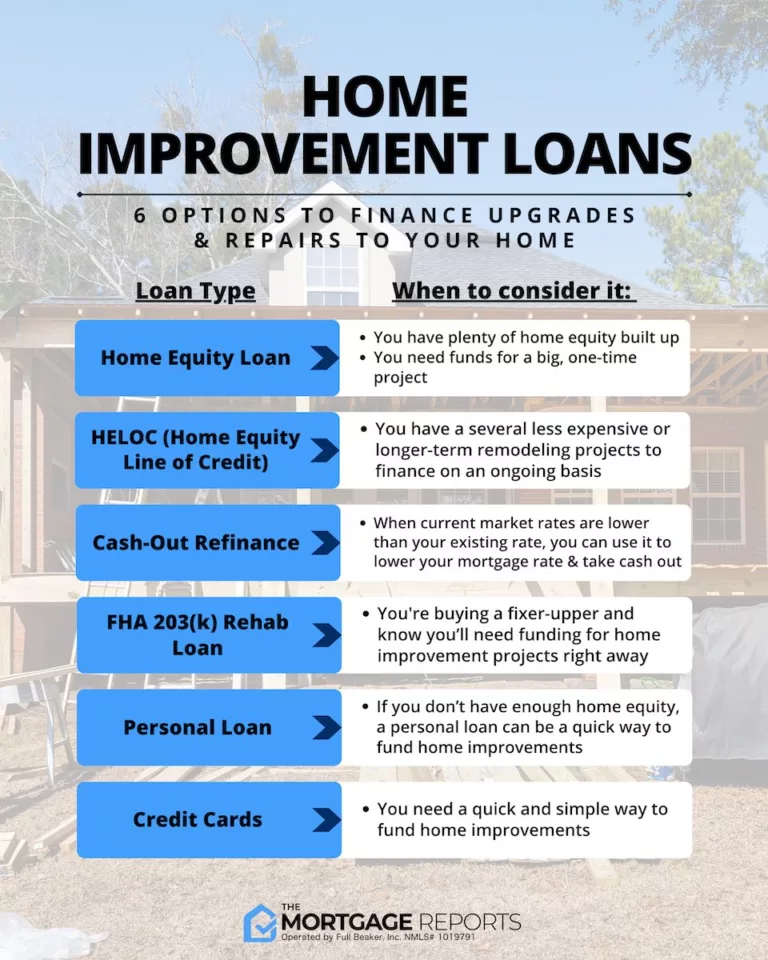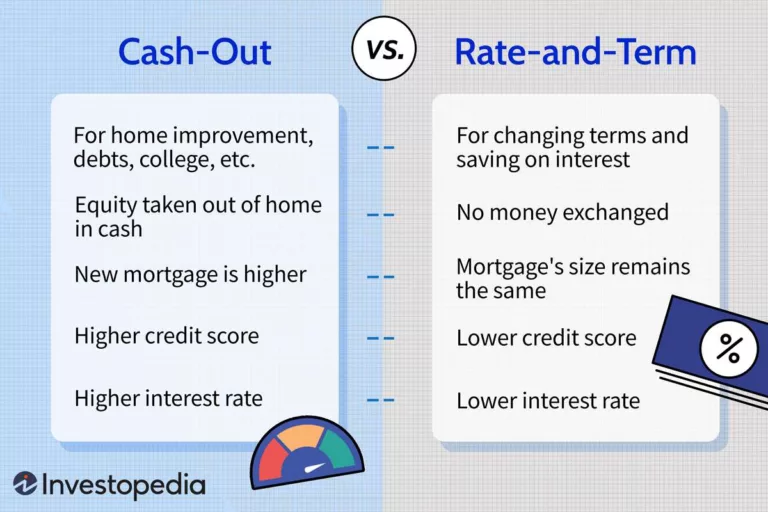How to Kickstart Your Mortgage Loan Officer Career With Zero Experience
To become a mortgage loan officer with no experience, complete the required education, gain industry knowledge through online courses or certifications, and network with professionals in the field. In addition, consider starting as a loan processor or a loan officer assistant to gain practical experience and learn the mortgage loan process.
Building relationships with real estate agents, lenders, and mortgage brokers can also help create opportunities for entry-level loan officer positions. By taking these steps and showing dedication and commitment to learning, you can break into the mortgage loan industry even without prior experience.
1. Understanding The Mortgage Loan Officer Career
Entering the real estate industry can be an exciting and lucrative move for those who are passionate about helping people achieve their dream of owning a home. One career option that offers great potential is becoming a Mortgage Loan Officer. In this section, we will delve into what a Mortgage Loan Officer does and why their role is essential in the real estate industry.
1.1 What Is A Mortgage Loan Officer?
A Mortgage Loan Officer, also known as a Mortgage Loan Originator, is a professional who assists individuals and businesses in securing loans to purchase, refinance, or remodel properties. They act as intermediaries between borrowers and lenders, analyzing financial data and recommending suitable loan options based on the borrower’s circumstances.
Mortgage Loan Officers play a crucial role throughout the mortgage process. They guide applicants through the application process, gather necessary documentation, evaluate creditworthiness, and provide advice on available loan programs and interest rates. Their goal is to help borrowers secure financing that best suits their needs while ensuring compliance with regulatory guidelines.
1.2 Importance Of Mortgage Loan Officers In The Real Estate Industry
The role of Mortgage Loan Officers is fundamental to the smooth functioning of the real estate industry. They facilitate the process of obtaining mortgage loans, ensuring that aspiring homeowners have access to the funds they need to purchase properties. Without Mortgage Loan Officers, many individuals may struggle to navigate the complex web of mortgage applications and requirements.
Moreover, Mortgage Loan Officers contribute to the stability of the housing market by assessing borrowers’ financial capability. Their expertise helps prevent risky loans and potential defaults, protecting both borrowers and lenders. By conducting thorough screenings and qualifying applicants for suitable loans, Mortgage Loan Officers promote responsible lending practices, which is crucial for the integrity and health of the real estate industry.
Mortgage Loan Officers also play a vital role in fostering relationships with clients, real estate agents, and lenders. Their ability to connect with borrowers and other industry professionals contributes to a smooth transaction process. By building trust, a Mortgage Loan Officer can develop a loyal client base and become a valuable resource within the real estate community.

Credit: www.facebook.com
2. Key Steps To Kickstart Your Mortgage Loan Officer Career
Are you considering a career as a mortgage loan officer but have no prior experience in the field? Don’t worry, because with the right guidance and steps, you can kickstart your mortgage loan officer career and excel in this rewarding profession. In this article, we will explore the key steps you need to take to become a mortgage loan officer with no experience. Let’s dive in!
2.1 Research And Understand The Mortgage Loan Officer Role
Before embarking on a mortgage loan officer career, it’s crucial to research and gain a comprehensive understanding of the role. A mortgage loan officer is responsible for assisting individuals and businesses in obtaining loans for purchasing or refinancing real estate properties. They evaluate loan applications, assess creditworthiness, and guide clients through the mortgage process.
To grasp the intricacies of the mortgage loan officer role, start by:
- Researching the mortgage industry and its current trends
- Understanding different types of mortgage loans, such as conventional, FHA, and VA loans
- Studying mortgage terminology and concepts to communicate effectively with clients and lenders
- Learning about the key players involved in the mortgage process, including lenders, underwriters, and appraisers
2.2 Develop Essential Skills And Knowledge
Building essential skills and knowledge is vital to succeed as a mortgage loan officer. The following are key areas you should focus on:
- Communication skills: As a mortgage loan officer, you need to effectively communicate with clients, lenders, and other stakeholders. Develop excellent verbal and written communication skills to convey information clearly and concisely.
- Negotiation skills: Enhancing your negotiation skills will help you secure the best loan terms for your clients. Learn how to negotiate interest rates, closing costs, and other loan-related fees.
- Financial analysis: Strengthen your ability to analyze financial documents, including tax returns, pay stubs, and credit reports. Understanding financial statements and assessing creditworthiness are crucial skills for a mortgage loan officer.
- Attention to detail: Paying attention to the smallest details is vital in the mortgage industry. Develop a keen eye for numbers, contracts, and legal documentation to ensure accuracy.
2.3 Obtain Required Certifications And Licenses
Acquiring the necessary certifications and licenses is a crucial step in establishing yourself as a mortgage loan officer. The specific requirements may vary depending on your location, but most states mandate the following:
| Requirement | Details |
|---|---|
| NMLS Certification | Enroll in the Nationwide Mortgage Licensing System (NMLS) and pass the required exams to become certified. This certification ensures compliance with federal regulations. |
| State License | Check your state’s licensing requirements and complete the necessary application forms. Pass the state-specific exams and background checks to obtain a mortgage loan officer license. |
| Mortgage Education | Complete the mandatory pre-licensing education, which usually consists of specific coursework on mortgage lending principles, ethics, and laws. |
By obtaining the required certifications and licenses, you demonstrate your commitment to professionalism and compliance, essential qualities in the mortgage loan officer industry.
Now that you have a clear roadmap to kickstart your mortgage loan officer career, it’s time to take action. Research the role, develop your skills, and acquire the necessary certifications and licenses to thrive in this exciting field. Best of luck on your journey!
3. Gaining Experience And Building A Network
Gain valuable experience and establish a professional network as you embark on a career as a mortgage loan officer even without prior experience. Connect with industry professionals and seek opportunities to learn and grow in this dynamic field.
Gaining experience and building a network are crucial steps to becoming a mortgage loan officer, especially if you don’t have any prior experience in the industry. These steps will not only provide you with the necessary skills and knowledge but also help you establish connections that can lead to future opportunities. Here are three effective ways to gain experience and build a network as a mortgage loan officer:
3.1 Seek Internship Or Entry-level Positions
If you’re starting from scratch, seeking internship or entry-level positions can be a great way to gain valuable experience in the mortgage lending industry. These positions allow you to learn the ins and outs of the business while working under the guidance of experienced professionals.
Consider reaching out to mortgage lenders, banks, or financial institutions to inquire about any available internships or entry-level positions. Highlight your eagerness to learn and willingness to contribute to the company’s success. By getting your foot in the door, you’ll be exposed to the day-to-day operations and processes involved in mortgage lending.
3.2 Join Industry Associations And Attend Networking Events
Joining industry associations and attending networking events can significantly expand your network as a mortgage loan officer. These associations and events bring together professionals in the mortgage industry, providing you with the opportunity to connect with influential individuals who can help further your career.
Start by researching and joining industry associations such as the Mortgage Bankers Association (MBA) or the National Association of Mortgage Brokers (NAMB). These associations often organize conferences, seminars, and networking events where you can meet industry experts and learn from their experiences.
When attending networking events, be proactive and engage in meaningful conversations. Remember to bring business cards and have an elevator pitch prepared to introduce yourself effectively. Building relationships with fellow professionals can pave the way for referrals and future job opportunities.
3.3 Build Relationships With Real Estate Professionals
Real estate professionals play a crucial role in the mortgage lending process. Establishing strong relationships with real estate agents, brokers, and other industry professionals can be invaluable when it comes to generating leads and building a solid client base as a mortgage loan officer.
Attend local real estate events, such as open houses or real estate conferences, to meet agents and brokers in person. Take the time to understand their needs and challenges in the market, and showcase how your expertise as a mortgage loan officer can add value to their clients.
Prioritize building a strong professional reputation by providing exceptional service and educating real estate professionals about the mortgage process. When real estate professionals trust and respect your abilities, they are more likely to refer their clients to you for mortgage financing needs.
4. Leveraging Technology And Online Platforms
Leveraging technology and online platforms is a crucial step in becoming a mortgage loan officer with no prior experience. These tools allow you to access valuable resources, connect with potential clients, and stay updated on industry trends, ultimately enhancing your chances of success in the field.
To become a mortgage loan officer with no experience, it is essential to leverage technology and online platforms. In today’s digital age, technology plays a vital role in streamlining processes, expanding your reach, and building credibility in the mortgage industry. By utilizing mortgage loan officer software and tools, developing an online presence, and leveraging social media for marketing and networking, you can establish yourself as a competent professional and increase your chances of success.
4.1 Utilize Mortgage Loan Officer Software And Tools
To excel in the mortgage industry, it is crucial to utilize mortgage loan officer software and tools that enhance your efficiency and productivity. These tools are specifically designed to simplify complex tasks and automate processes, saving you time and effort. By using mortgage origination software, customer relationship management (CRM) systems, and loan servicing software, you can streamline loan applications, track progress, communicate with clients, and manage your pipeline effectively. These software solutions provide real-time data, generate accurate reports, and facilitate collaboration with stakeholders, ensuring a smooth loan origination and processing experience.
4.2 Develop An Online Presence
To establish yourself as a mortgage loan officer, developing a strong online presence is essential. This includes creating a professional website to showcase your expertise, services, and testimonials from satisfied clients. Ensure your website is visually appealing, mobile-friendly, and easy to navigate. Additionally, optimize your website for search engines by implementing relevant keywords in your content, meta tags, and URLs. This will help potential clients find you when they search for mortgage loan officers in their area. Consider starting a blog to provide valuable information and insights related to mortgage lending, which can establish you as a trusted authority in the field. Finally, make sure to include your contact information prominently on your website, making it easy for interested clients to reach out to you.
4.3 Leverage Social Media For Marketing And Networking
Social media platforms have become powerful tools for marketing and networking, and mortgage loan officers can leverage these platforms to reach a wider audience and build relationships. Create professional profiles on platforms like LinkedIn, Facebook, Twitter, and Instagram to establish your online presence. Regularly share informative and engaging content related to the mortgage industry, such as tips for first-time homebuyers, mortgage calculators, or updates on current interest rates. Engage with your audience by responding to comments, messages, and inquiries promptly. This not only helps you build trust and credibility with potential clients but also allows you to network with industry professionals, such as real estate agents, appraisers, and attorneys. By actively participating in relevant industry groups and conversations, you can expand your network and increase referral opportunities for mortgage loan leads.
5. Continuing Education And Career Advancement
As a mortgage loan officer, your journey doesn’t end once you’ve earned your license and secured your first job. In fact, staying proactive and continuously seeking out opportunities for professional growth will not only enhance your skills but also open doors to a successful and rewarding career. Here are some key strategies to consider:
5.1 Stay Updated With Industry Trends And Regulations
To excel in the mortgage industry, it’s crucial to stay well-informed about the latest trends, changes in regulations, and market shifts. This knowledge will give you a competitive edge and help you provide the best guidance and solutions to your clients. To stay updated, regularly follow industry news, subscribe to respected publications, and join relevant professional organizations. These resources will keep you up to speed with emerging opportunities and ensure that you’re always delivering the most accurate and relevant information to your clients.
5.2 Pursue Advanced Certifications And Specializations
Becoming a mortgage loan officer is just the first step towards a successful career. To stand out from the competition, consider pursuing advanced certifications and specializations. These credentials demonstrate your commitment to professional growth and enhance your knowledge in specific areas of expertise. For example, you might explore certifications in FHA loans, VA loans, or commercial lending. By expanding your skillset, you’ll increase your value to employers and attract more clients who are seeking specialized assistance.
5.3 Seek Mentorship And Professional Development Opportunities
Never underestimate the power of mentorship and professional development opportunities. Connect with experienced loan officers or industry veterans who can guide you through the nuances of the business and provide valuable insights. A mentor can help you navigate challenging situations, develop effective strategies, and make sound professional decisions. Additionally, take advantage of professional development programs, webinars, conferences, and workshops offered by industry organizations. These events are ideal for networking, gaining new perspectives, and expanding your knowledge base.
Remember, education doesn’t solely come from textbooks and courses. It’s an ongoing process that involves actively seeking new knowledge and refining existing skills. By staying updated with industry trends and regulations, pursuing advanced certifications and specializations, and seeking mentorship and professional development opportunities, you’ll continually elevate your career as a mortgage loan officer, while providing exceptional service to your clients.

Credit: m.facebook.com

Credit: www.ziprecruiter.com
Frequently Asked Questions Of How To Become A Mortgage Loan Officer With No Experience
Can I Be A Mortgage Loan Officer As A Side Hustle?
Yes, it is possible to work as a mortgage loan officer as a side hustle. This can be a flexible option to earn additional income while having a primary job. However, getting licensed, gaining experience, and ensuring compliance with regulations are essential steps to pursue this opportunity successfully.
Why Do Loan Officers Quit?
Loan officers quit for various reasons including high stress levels, low job satisfaction, limited career growth, intense competition, and stringent regulations. Additionally, factors such as inadequate compensation, lack of work-life balance, and challenging market conditions contribute to their decision to leave the profession.
What Degree Do You Need To Be A Loan Officer?
To be a loan officer, you typically need a bachelor’s degree, preferably in finance, economics, or a related field. However, some positions may accept candidates with a high school diploma and relevant work experience. It’s important to check with employers for specific requirements.
How Can I Succeed As A Mortgage Loan Officer?
To succeed as a mortgage loan officer, follow these steps: 1. Build a strong network by connecting with real estate agents and financial professionals. 2. Stay updated on industry trends and regulations to provide accurate advice. 3. Develop excellent communication skills to understand and meet clients’ needs.
4. Provide exceptional customer service to build trust and loyalty. 5. Continuously educate yourself and enhance your knowledge to stand out in the field.
Conclusion
To sum up, embarking on a career as a mortgage loan officer without any prior experience may seem challenging, but it is not impossible. By following the right steps and investing in the necessary education and training, you can build a strong foundation for success in this field.
Remember to network, stay updated on industry trends, and continuously improve your skills. With dedication and perseverance, you can make your mark as a mortgage loan officer and pave the way for a rewarding career.




